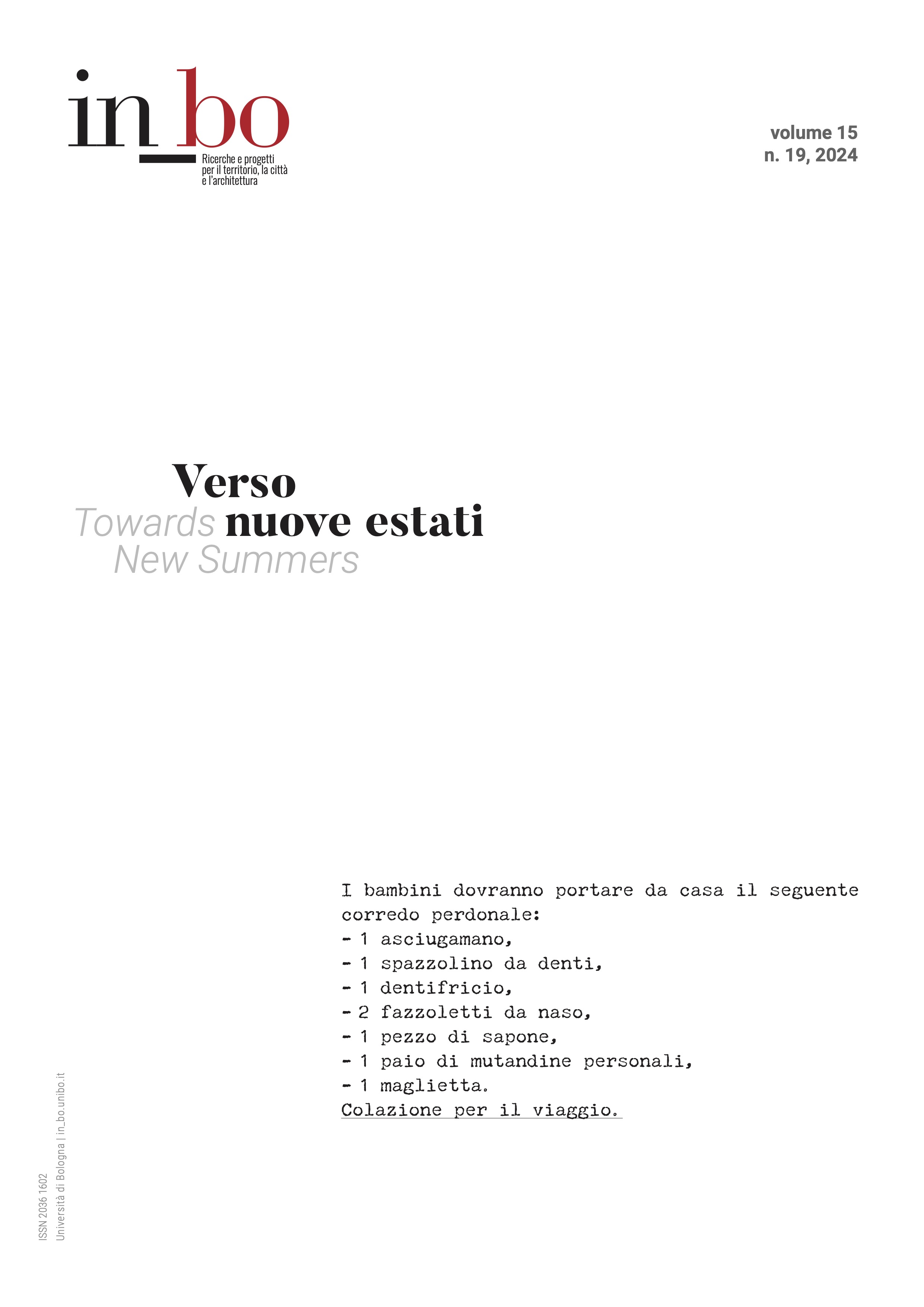Believe, Obey, Recover: The Political Purpose of the Italian Fascist Colonie
DOI:
https://doi.org/10.6092/issn.2036-1602/19714Keywords:
children holiday camps, institutions of indoctrination, politics, fascist emblems, leader cultAbstract
Originally established as welfare institutions at the beginning of the 20th century, under Italian fascism the function of the holiday camp was transformed into an instrument of indoctrination and physical training. Built predominantly using the architectural language of the razionalismo, the summer camps of the 1920s and 30s were impressive in their design and spatial organisation. But even if their modernist architecture does not seem to have any political references, there are several enrichment codes and symbols that form the backdrop to exert an ideological influence on the young visitors. Lettering, political emblems and slogans, works of art, machine aesthetics and ultimately the floor plan organisation all had an effect on the guests. With the colonie, an entire generation was disciplined, manipulated, sworn to Mussolini and the fascist regime and ultimately prepared for war. After the war, the buildings were mainly taken over by state or church relief organisations. With increasing individual tourism, many facilities have stood empty since the 1970s. Their desirable restoration and conversion, however, should take account of the ominous purpose and orientation and make them visible. Artistic and architectural interventions can be a way to critically question these legacies of fascism for future generations.
Downloads
Published
How to Cite
Issue
Section
License
Copyright (c) 2024 Arne Winkelmann

This work is licensed under a Creative Commons Attribution-NonCommercial 4.0 International License.





